Unpaid Medical Bills: Consequences You Need to Know About
Whether you're uninsured or you received emergency care that wasn't covered by your insurance, you're certainly not alone if you're struggling with medical bills. , so it's important to be aware of what these are and how to avoid them. Medical debt, like any other unpaid debt, can hurt your credit and make it harder to find a home or borrow money.
DoNotPay can help you fix your credit report, including removing collections information for unpaid medical debt. Here's what you should know about the consequences of unpaid medical bills.
What Are the Consequences of Unpaid Medical Bills?
These are the three key , especially in the context of their effect on your credit score and report.
| Collections Calls and Letters | If your medical bill goes unpaid long enough, it'll be sent to collections. This means you'll get lots of calls and letters demanding payment, which can be incredibly stressful and mentally draining. |
| Liens and Wage Garnishments | If your medical bills continue to go unpaid, your creditors might be able to put a lien on your property or garnish your wages.
A lien prevents you from selling your property and gives the creditor the right to potentially possess your property—in this case, may mean either your home or car. A wage garnishment happens when the creditor takes your debt payments directly from your salary. |
| Credit Score and Report Damage | Unpaid medical bills can seriously hurt your credit score. This makes any type of situation that requires a credit check difficult. This includes buying a home, renting an apartment, or buying a car. |
What to Do if You Have Medical Bills You Can’t Pay
There are a few different things you can do to prevent the negative consequences of , as discussed in the previous section above. Most of these options may require you to do them on your own, but there are options open to you where you can get the help you need for settling and managing your debt.
1. Check for mistakes
When you first receive any medical bills, double-check the details to make sure they're correct. If you have insurance, make sure that anything that wasn't covered was filed properly.
2. Negotiate
If you receive a bill you can't pay, call the hospital or doctor's office's billing department and ask to have your bill reduced. Hospitals are usually willing to negotiate a more reasonable bill, since they'd rather get some payment than no payment.
3. Establish a payment plan
If you decide on your own to only pay some of your medical bills, the creditor will still treat this as though you aren't paying your bills. Talk to your healthcare provider to set up a payment plan that includes a reasonable monthly payment. This will let you pay off your bill gradually without being sent to collections.
These steps require you to pay at least some of your medical bills, but they'll prevent the debt from being sent to collections.
4. Get help from DoNotPay
Instead of worrying and stressing over unpaid medical bills and their consequences, you can turn to DoNotPay for help. DoNotPay offers you a perfect solution to your needs and may help you with options on resolving those unpaid medical bills with as little stress and worry as possible.
Manage Your Unpaid Medical Debt With DoNotPay
Unpaid medical bills can do serious damage to your credit report, which can make borrowing money in the future difficult. Once you get negative marks on your credit report, fixing the problem can be a major challenge. DoNotPay's Clean Credit Report product offers a fast, easy and successful solution. Let DoNotPay know which plan of action applies to your situation, and it will contact the services providers/creditors on your behalf.
How to Clean Up Your Credit Report Using DoNotPay
Need to improve your credit report but aren't sure where to start? DoNotPay can handle it in 3 simple steps:
- Search Clean Credit Report on DoNotPay.
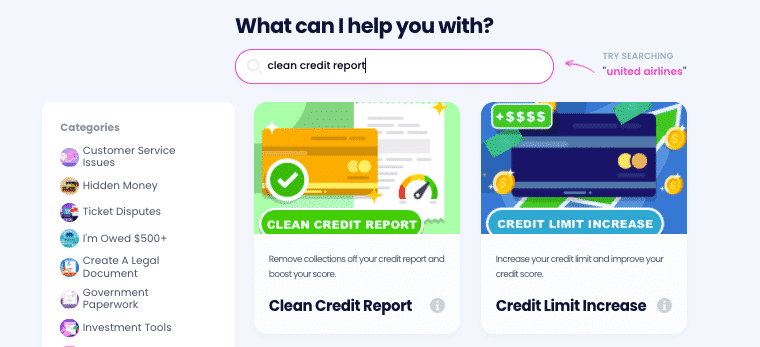
- Prepare a recent copy of your credit report that you can use as reference.
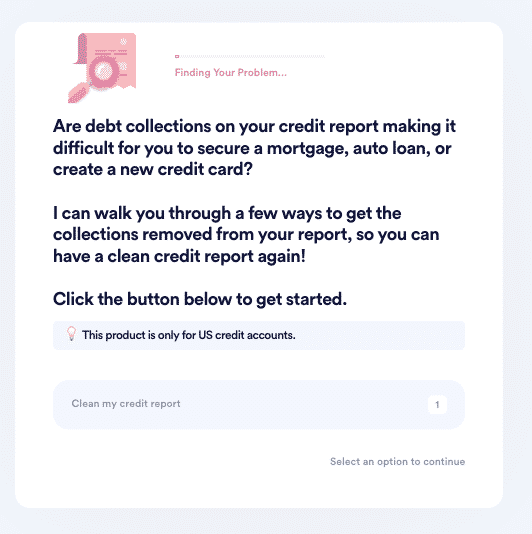
- Let DoNotPay guide you through the 4 potential options:
- If you've already paid off your debt, DoNotPay will help you file a Goodwill Removal Request to get it removed.
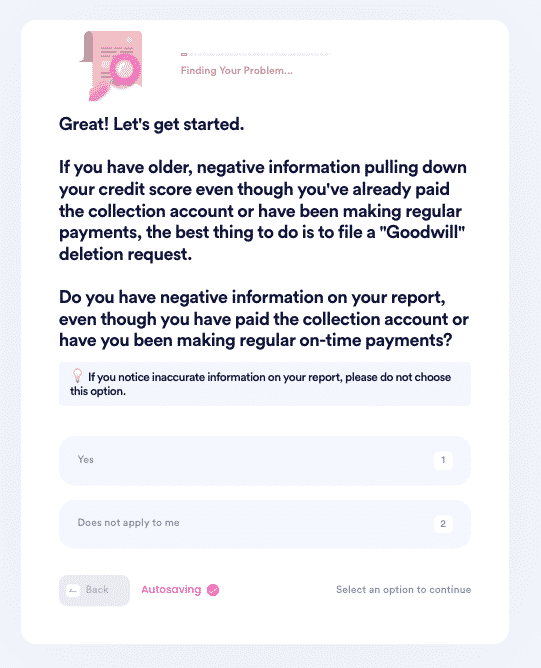
- If you notice any errors in your report (DoNotPay has a list of common errors that you can use), DoNotPay will help you file a credit dispute to the creditor or major credit bureaus.
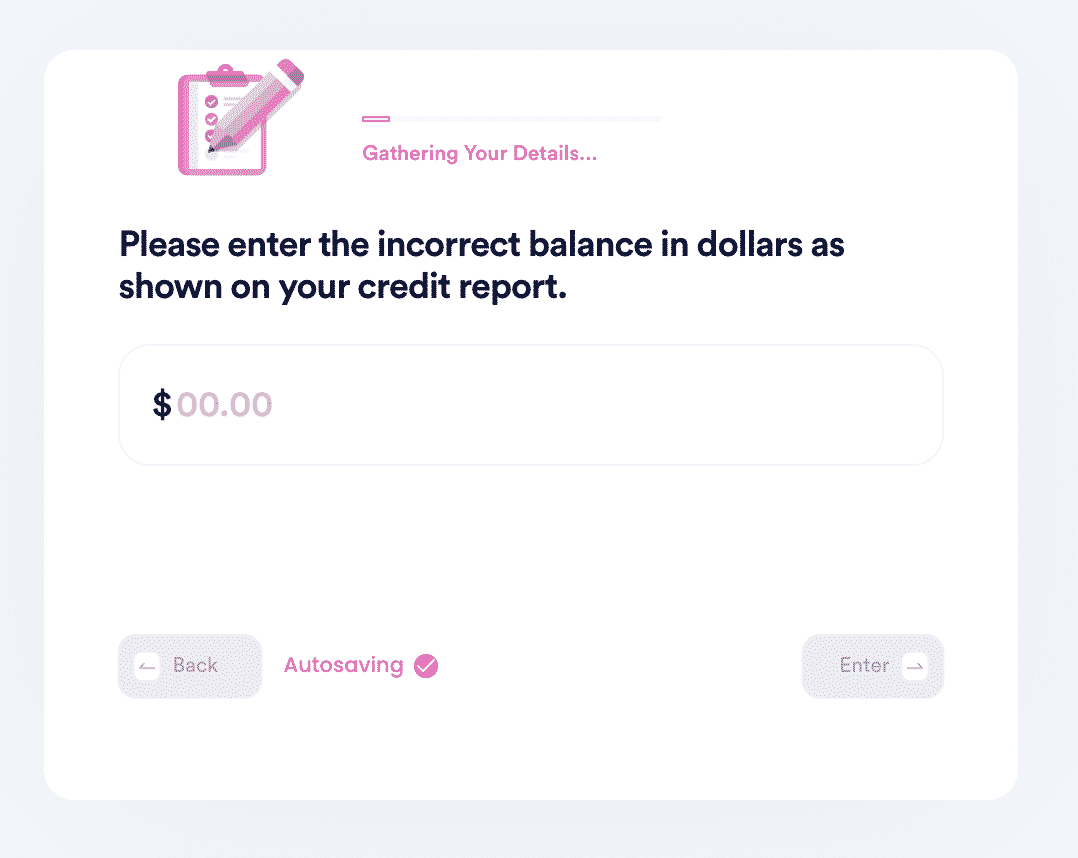
- If there are no errors, DoNotPay will check if you're still eligible to file a debt validation request. If they can't validate your debt, they're required to remove it from your report and they can't collect it.
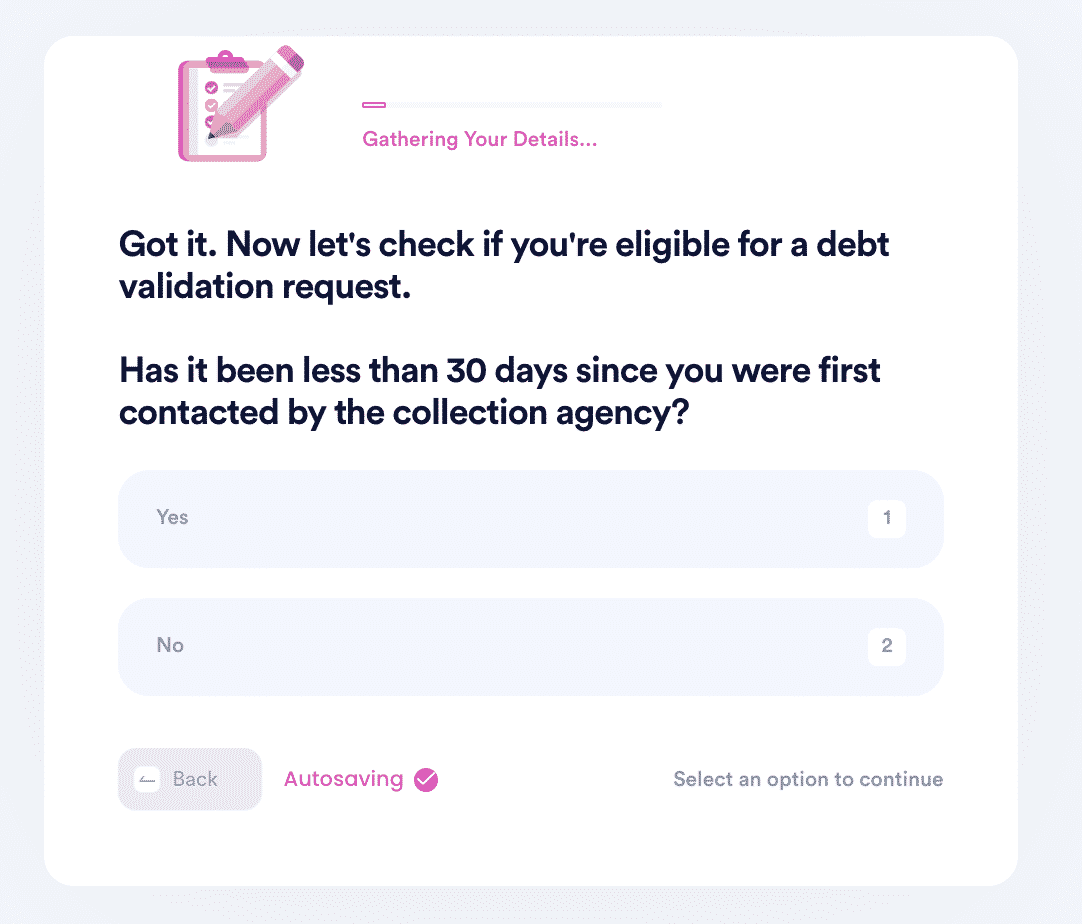
- Lastly, if none of the above options work, DoNotPay will help you file a pay-to-delete negotiation letter. You can customize the amount you are willing to pay in exchange for getting the item removed.
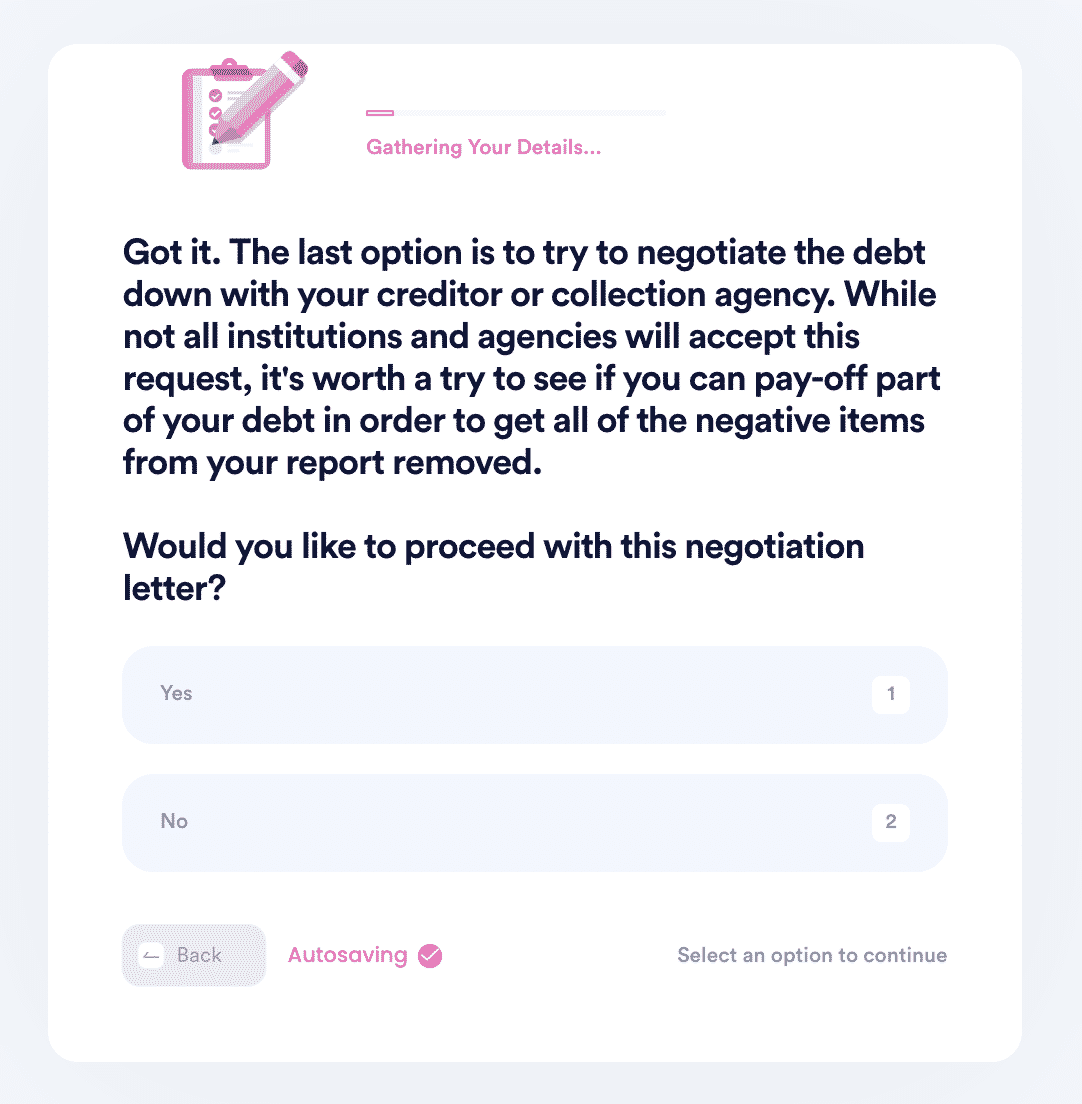
You can also take a look at DoNotPay’s other credit products like Credit Limit Increase, Get My Credit Report, Keep Unused Cards Active, and more.
DoNotPay Helps With All Types of Credit Problems
DoNotPay can help you improve your credit in many different ways, so you can easily:
- Dispute information in your credit report
- Get a debt validation letter
- Send a credit dispute letter
- Remote late payments from your credit report
- Remove inquiries from your credit report
What Else Can DoNotPay Do?
DoNotPay helps you save time and money. For example, you can use DoNotPay to quickly:
To prevent negative consequences of unpaid medical bills, contact DoNotPay now!
 By
By